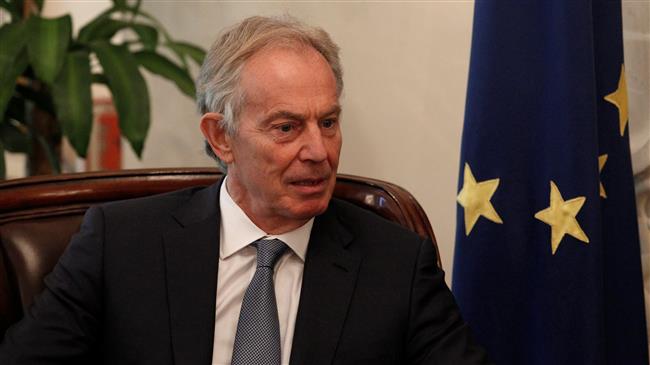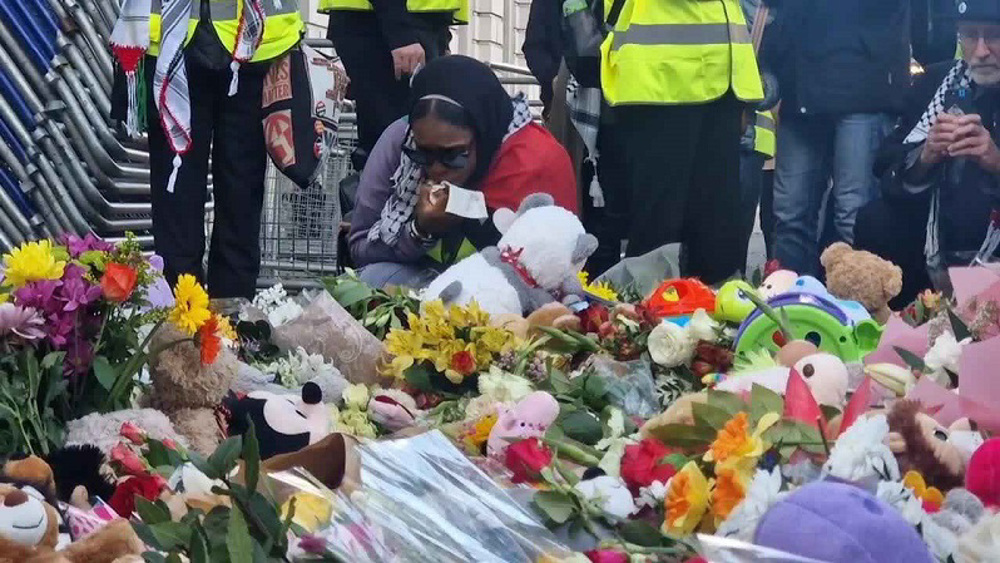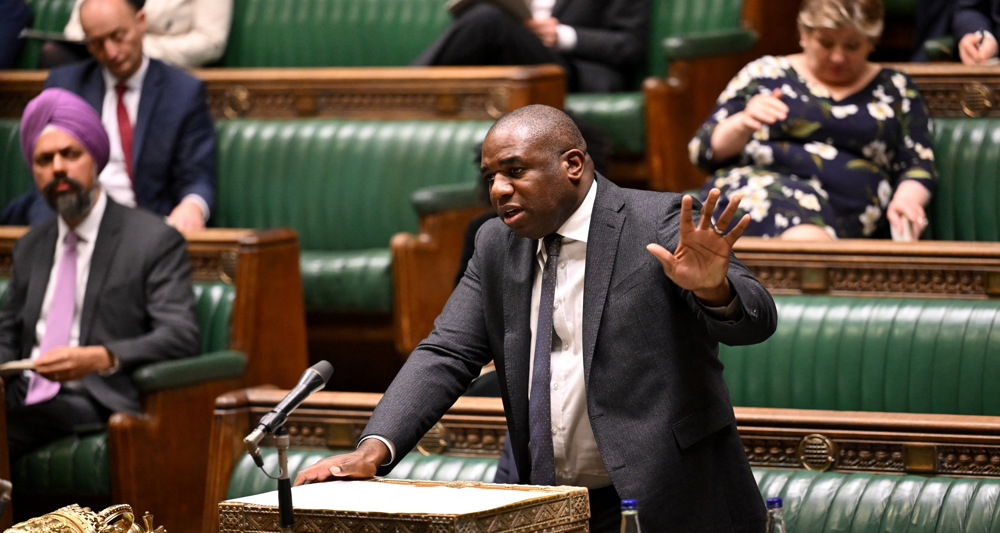UK should launch military action in Syria because 'non-intervention has consequences': Blair
Former British Prime Minister Tony Blair, who had backed the 2003 US-led invasion of Iraq on the pretext of weapons of mass destruction, has said that Britain should support a military action against Syrian President Bashar al-Assad in response to the recent alleged chemical weapons attack in Syria.
Blair said on Tuesday that British Prime Minister Theresa May should be prepared to support potential US strikes because “non-intervention is also a policy with consequences.”
He said the government would not necessarily need to seek parliament’s approval for air strikes against the Assad government, since UK action against the Syrian government is “highly likely.”
Talk of possible UK military action follows reports that of an alleged chemical attack on Saturday in the militant-held town of Douma in the Eastern Ghouta region which left dozens dead and drew international condemnation from various countries and international bodies.
On Sunday US President Donald Trump Assad of launching a chemical attack near the capital Damascus, saying there will be a “big price to pay.”
Blair told BBC Radio 4's Today program, “If the US are taking action we should be prepared to be alongside them,” adding the UK government should “support US action.”
“It's important to realize that if we allow it to go unchecked and unanswered then obviously the Assad regime and their outsider backers in Russia and Iran will feel emboldened to do more, so I think it is important that we react.”
Damascus, in a statement released late on Saturday, strongly rejected the allegation of using chemical munitions and said that the so-called Jaish al-Islam Takfiri terrorist group, which has dominant presence in Douma, was repeating the accusations “in order to accuse the Syrian Arab army, in a blatant attempt to hinder the Army’s advance.”
The governments of Iran and Russia have also rejected the accusations against the Syrian government.
“If the Americans are prepared to act and are going to act fast, I think ourselves - probably the French government will be in the same position - should be supportive, because it's important that when chemical weapons are used in this way and the international community has taken a firm position against it, then you have to enforce it,” Blair said.
In April, a suspected sarin gas attack hit the town of Khan Shaykhun in the northwestern Syrian province of Idlib, taking at least 80 lives. Accusing Damascus, the US then launched several dozen Tomahawk cruise missiles at a Syrian air base, taking the lives of about 20 people including both Syrian soldiers and civilians.
Blair strongly backed the Bush administration
Blair's recent statement reminds of the time when Britain, as a leading player in the US-led coalition, invaded Iraq in 2003 after accusing Saddam Hussein of possessing weapons of mass destruction. The weapons were never found.
The Chilcot Inquiry, was established in 2009 to investigate Britain’s most controversial military engagement since the end of the Second World War, published its 6,000-page report in 2106.
The inquiry strongly criticized the UK government’s decision-making process in the run-up to the invasion.
The inquiry acknowledged that Blair’s desire to preserve the UK’s special relationship with Washington was a “determining factor” in the decision to join the war.
“Iraq shows you intervention is extremely difficult but non-intervention, as we see from Syria, is also extremely difficult," Blair said on Tuesday.
The invasion plunged Iraq into chaos, resulting in years of deadly violence and the rise of terrorist groups like Daesh (ISIL). The war led to the deaths of more than one million Iraqis.
The US and its allies have been bombarding what they call Daesh positions inside Syria since September 2014 without any authorization from the Damascus government or a UN mandate.
The strikes have on many occasions resulted in civilian casualties and failed to fulfill their declared aim of countering terrorism.
VIDEO | Report flags India’s violation of rights of Rohingya detainees
Turkey's foreign minister meets Syria's de facto leader in Damascus
'Next to impossible' to rescue patients from Gaza's Kamal Adwan Hospital: Director
VIDEO | Vietnam current prosperity
Report blames gasoil exports for shortage at Iranian power plants
VIDEO | Hind Rajab Foundation names Israeli war criminals vacationing after Gaza genocide
VIDEO | Australians rally for Gaza ahead of Christmas festivities
VIDEO | Attacks on Sana'a











 This makes it easy to access the Press TV website
This makes it easy to access the Press TV website